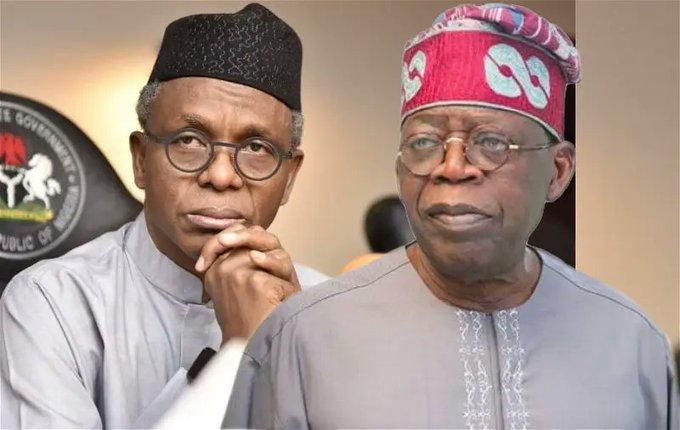'You're bitter and selfish' - Group blasts El-Rufai over latest Tinubu criticism

Group Condemns El-Rufai's Criticism of Tinubu, Cites 'Bitterness'
A group known as the Citizens Collective for Good Governance (CCGG) has strongly criticized former Kaduna State Governor Nasir El-Rufai for his recent remarks against President Bola Tinubu, alleging that the criticisms stem from personal bitterness and unfulfilled ambitions.
El-Rufai's Claims and CCGG's Rebuttal
El-Rufai, during a recent appearance on Arise Television, claimed that President Tinubu would need a "miracle" to win re-election in 2027, citing purported polling data indicating a 91% disapproval rating. The CCGG, in a statement released on Tuesday, June 24, 2025, dismissed El-Rufai's claims as “fabricated and delusional,” suggesting they were motivated by his exclusion from the federal cabinet.
Accusations of Self-Interest
Dr. Gambo Abdulkadri, president of the CCGG, accused El-Rufai of launching a "desperate and vindictive campaign" against President Tinubu. "The public outburst by Mallam Nasir El-Rufai is nothing but the cry of a political actor whose ego was bruised when President Tinubu, in his wisdom, declined to reward him with a ministerial position," the statement read.
Tinubu's Administration: Achievements Highlighted
The CCGG lauded President Tinubu's administration, citing reforms in the oil and gas sector, anti-corruption efforts, and initiatives aimed at food security and job creation as evidence of progress. They highlighted the removal of fuel subsidies and the restructuring of the fiscal regime as particularly significant steps.
Ending fuel subsidy fraud Restructuring the fiscal regime Renewed Hope agricultural mechanisation programme Student loan scheme Foreign investment drive Infrastructure renewal
Historical Context and Political Implications
This recent exchange underscores the complex political landscape in Nigeria. Historically, alliances and rivalries within the ruling party have significantly influenced governance and policy direction. El-Rufai's past close ties with President Buhari, and his perceived distance from Tinubu, add another layer to the current situation. The public disagreement also highlights potential fractures within the All Progressives Congress (APC) as the 2027 election cycle approaches. According to political analyst, Dr. Amina Bello, "These kinds of public disagreements, especially involving prominent figures like El-Rufai, can signal underlying tensions within the ruling party and potentially impact its cohesion and electoral prospects."
El-Rufai's Legacy Under Scrutiny
The CCGG statement also criticized El-Rufai's tenure as Governor of Kaduna State, citing debt accumulation, insecurity, and alleged ethnic polarization. "Let’s not forget the mass displacement of communities under El-Rufai’s watch, or the reckless borrowing and ethnically polarised governance that characterised his tenure," Abdulkadri stated.
Expert Analysis: Impact on Public Perception
Political communications expert, Professor Dele Ojo, noted that El-Rufai's statements, regardless of their factual basis, could influence public perception. "Even if the polling data is questionable, the consistent criticism from a figure like El-Rufai can create a narrative of dissatisfaction around the President, which can be difficult to counter," Ojo explained. He emphasized the importance of the government proactively communicating its achievements and addressing public concerns to maintain confidence.
Call for Constructive Engagement
The CCGG urged political leaders to prioritize national interests over personal grievances and contribute constructively to nation-building. The group cautioned against inflammatory rhetoric that could undermine critical reforms. The statement concluded by urging Nigerians to "ignore voices of distraction and stand firmly behind a government that is working to secure our future."
Looking Ahead
The unfolding political drama raises questions about the future of the APC and the political landscape leading up to the 2027 elections. Whether El-Rufai's criticisms represent a broader discontent within the party or simply reflect personal grievances remains to be seen. However, the exchange underscores the importance of transparency, accountability, and constructive dialogue in Nigerian politics.
Originally sourced from: pulse Ng
